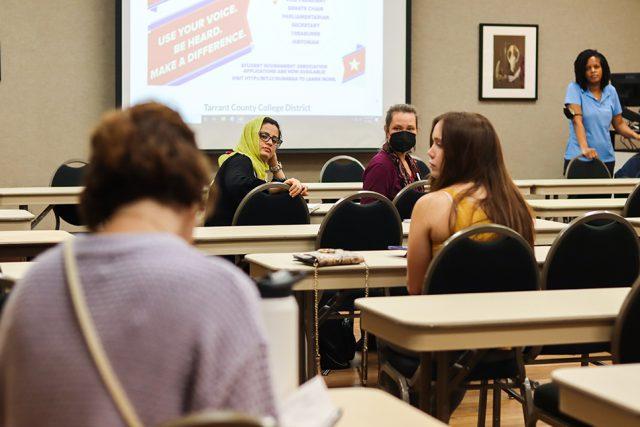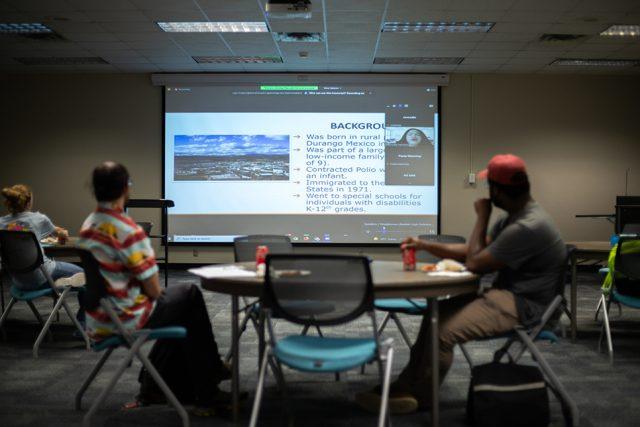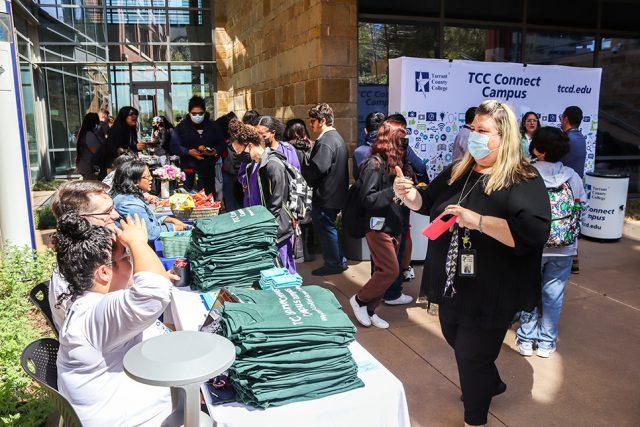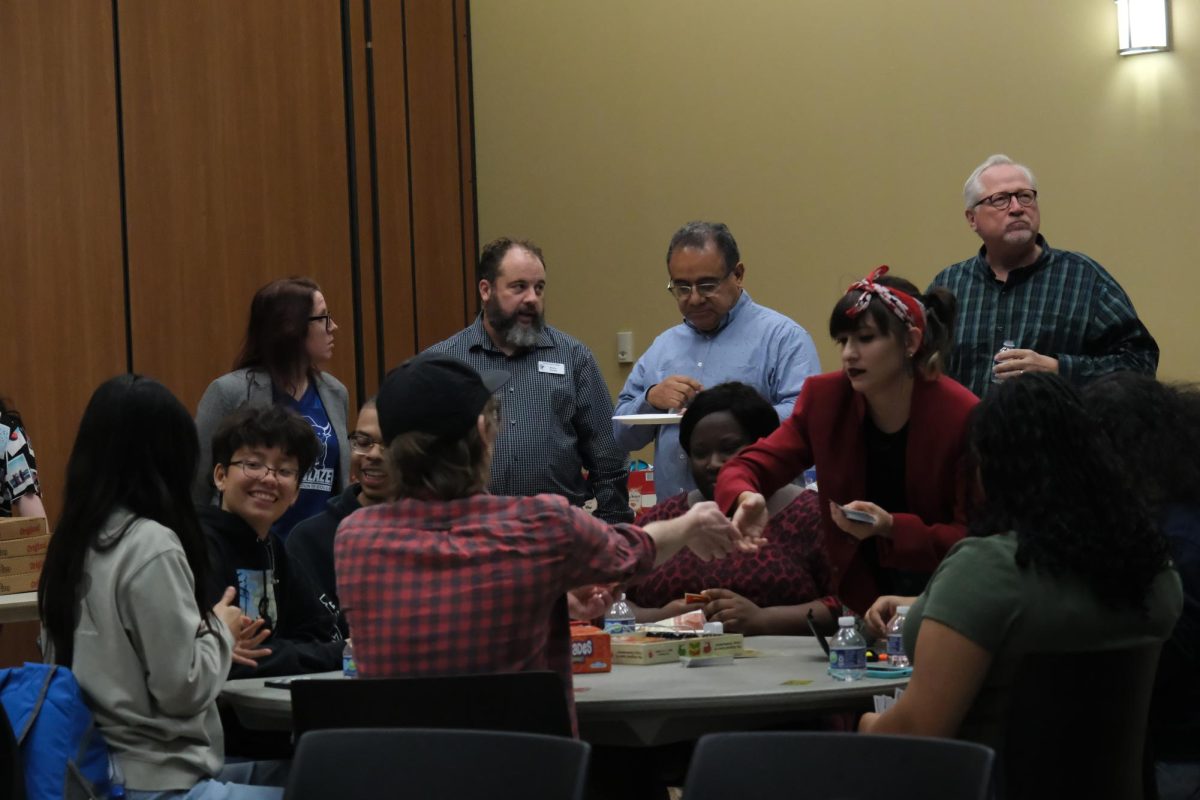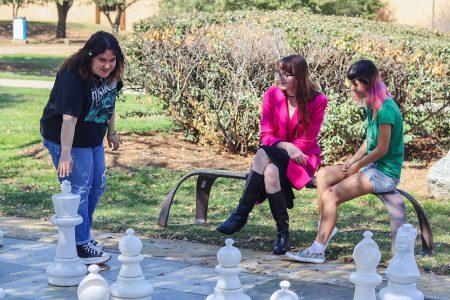
Alex Hoben/The Collegian
JUAN SALINAS II
senior editor
juan.salinas465@my.tccd.edu
Florida’s “Parental Rights in Education” bill gained the attention of Texas’ Lt. Gov. Dan Patrick, concerning students and faculty.
The legislation prohibits classroom instruction on sexual orientation and gender identity for students in kindergarten through third grade. Patrick said that passing something similar in Texas would be a top priority in the next session, according to the Texas Tribune.
State lawmakers have proposed a record 238 bills that would limit the rights of LGBTQ Americans this year, according to an NBC News data analysis from the American Civil Liberties Union and LGBTQ advocacy group Freedom for All Americans.
“These state legislative attempts aren’t showing up randomly,” NW assistant professor of government Aubree Calvin said. “They’re the result of a Conservative strategy that started over a decade ago. Evangelical Christian groups, like the Alliance Defending Freedom and the Heritage Foundation, are pushing anti-LGBTQ policies to mobilize their political base. Polls show Americans are becoming more accepting of us (gays, lesbians, trans persons), and the pool of religious voters is shrinking. These ‘controversial’ issues are a way to motivate the evangelical base to vote in elections.”
This strategy isn’t new, Calvin said. The idea of “parent’s rights” in education was used in the 60s and 70s when white parents opposed busing and attempted to integrate public schools.
SE student Jada Bostick said this type of legislation directly threatens her freedom.
“Conservatives want nothing more than to restrict and limit human rights from anyone who does not look like them,” Bostick said.
Bostick accuses Patrick of being manipulative by using this to distract Texans from more pressing issues.
“Inflation is killing many people’s paychecks, children are starving and abused, yet they choose to focus on limiting rights?” she said. “Insanity.”
NW student Maria Espinosa blames the previous administration for this uptick in legislation.
“Many Conservatives feel entitled to force their opinion on others,” Espinosa said. “Many Conservatives know that the Liberals are tired of constantly defending themselves, so now they have forced us into a corner.”
She said she doesn’t understand how talking about sexuality to kids is an issue, but other controversial topics such as religion are OK to discuss with them.
“We should just all respect people’s beliefs but make school a safe space for any topics to be talked about without children having the fear of being ridiculed,” Espinosa said.
South counselor Andrew Hill said that the “hyper-partisan” Supreme Court plays a part in this since it has an “ultra-Conservative lean.” The court will limit victories for the LGBTQ community, Hill said.
NW professor of government Joseph Ialenti agrees with some parts of the legislation.
“Some provisions of the legislation are wildly ambiguous and will certainly be subject to school district, parental and court interpretation,” Ialenti said. “However, introducing young children to sexual subjects is quite unnecessary and inappropriate.”
He said it’s one thing to request an acknowledgment or an accommodation, but it’s different when it’s demanded.
“To many, it contravenes personal religious beliefs and parental prerogatives and sensitivities,” he said. “It also smacks of replacing parents with government. You don’t have to be a genius to understand that when you mess with a person’s religious beliefs and their kids that you are going to get a vigorous reaction.”




















